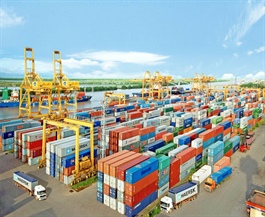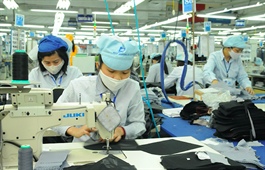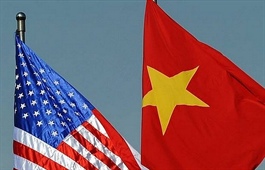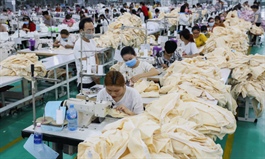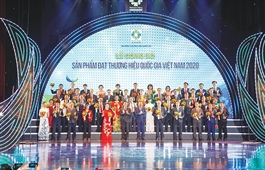Domestic M&A activities bolstered by private sector
Domestic M&A activities bolstered by private sector
The government’s steady economic restructuring and integration into the global economy have benefited its private sector, with phenomenal growth both in the number of private companies and their contribution to the nation’s GDP. These improvements have resulted in a thriving mergers and acquisitions market. Vu Thanh Le, CEO of LM Capital, discussed with VIR’s Hai Van the key to success in this promising market.
Looking back on the past 20 years, what factors have had the largest impact on the Vietnamese mergers and acquisitions (M&A) market?

Vu Thanh Le, CEO of LM Capital
|
The most critical factor was the government’s restructuring of the state-owned sector, with a focus on equitisation of state-owned enterprises (SOEs) and reduction of the government’s equity in large corporations. After the global financial crisis in 2008, the emergence of Vietnam’s stock market attracted many domestic and foreign investors and total capital investment in the 2010-2015 period grew five times compared to 2004-2009, and the number of foreign investors increased by 10-15 per cent each year.
With policies being gradually refined to improve the investment and business environment, the domestic M&A market has grown strongly, as evidenced by rising transaction values as well as the government’s annual foreign direct investment reports.
Aside from foreign investors, we should highlight the contributions of Vietnamese entrepreneurs who started their business in Eastern Europe and have since returned to Vietnam to support development of the M&A market.
Vietnam opened up to foreign indirect investment at the end of 2003. What are your views on the historical investment waves since then?
In the 2003-2010 period, when the capital markets started, Vietnam welcomed investment through foreign funds that focused on equitising SOEs and private companies in the domestic consumption industry.
The years 2010-2015 saw strong equitisation of large SOEs in banking and construction, as well as in food and consumer goods. The capital market has received large investments mainly from Japan, South Korea, and other ASEAN countries. However, the most aggressive group was Vietnamese entrepreneurs returning from Eastern Europe who focused on acquiring controlling stakes and getting directly involved in the daily operations of the companies in sectors like banking, real estate, retail, and consumer goods.

LM Capital CEO Vu Thanh Le received an M&A Advisor of the Year award for 2019-2020 at last week’s Vietnam M&A Forum, photo Le Toan
|
What does the future hold for the local M&A market?
The government continues accelerating SOE equitisation and divestment. However, the SOEs currently awaiting their turn are in highly-regulated industries such as oil and gas, electricity, telecoms, and airlines, which is bound to complicate execution and make it more difficult to attract overseas investors as these areas are limited for foreign ownership.
The private sector is becoming increasingly important for the economy. Of the 739 companies listed on the Hanoi and Ho Chi Minh City stock exchanges, only 6.2 per cent are of a large market capitalisation with over $400 million and 21.3 per cent are mid-cap ($50-$400 million). Private businesses are usually from the real estate, infrastructure development, or consumer goods industries which are benefiting from the strong domestic economic growth, so they have strong demand for capital to fund future production and business expansion plans.
The rapid and strong development of Vietnam’s stock market in recent years has provided private companies access to the capital market and enhance their operating processes in line with industry benchmarks. Having become more developed in capital and business experience, they begin to seek new development opportunities by entering into cooperation with foreign strategic investors through M&A activities.
The private sector seems set to grow even more. What do you think will be the main driving forces?
First, domestic private businesses realise the necessity of accelerated growth in size and improvements in their business model through changing operating models and management methods to maintain competitiveness. They are now seeking not only capital but also non-financial added value from strategic investors such as know-how.
In the real estate segment, for example, businesses previously only transferred projects to foreign investors instead of forming long-term, strategic cooperation at the group level. Domestic players understand the local market better and are able to develop good residential properties while strategic foreign investors have the know-how in cost-reducing technology as well as a good understanding of yet undeveloped products such as commercial properties. Cooperation can bring substantial value to all.
In fact, domestic businesses with a turnover of about VND2-3 trillion ($87-130 million), after-tax profit of about VND150-200 billion ($6.5-8.7 million), and capital requirements of less than $50 million are in the “sweet spot” of strategic foreign investors.
Domestic businesses have also transformed themselves from a private corporate model dependent on a few key individuals to a joint stock company model with an independent management structure, standardised operating processes, and transparent corporate governance. They are well-prepared to receive investment from investors.
Has the domestic private sector managed to transform to compete and embrace the challenges of the new era?
Businesses are not only transforming to be more proactive and ready to seek capital, they also prepare management resources to deploy the capital effectively.
First, regarding corporate governance, businesses have separated the ownership, governance, and operations between the board of directors (long-term strategy), management board (strategic and technical issues), and departments (execution and reporting). Management and operation are also separated between the group company and its subsidiaries. This has established an efficient organisational structure and increased overall productivity. Businesses also standardise the management and operating process by implementing management information systems. More and more businesses are applying enterprise resource planning systems for accounting, production, and sales.
Finally, when it comes to human resources, a major problem for private companies is to attract and retain a high-calibre, competent team to succeed. Key managerial positions must acquire sufficient foreign training and exposure and adequate practical experience in Vietnam, as well as strong executive management skills.
Businesses have been preparing to access new capital sources. What factors need to be considered in capital raising and M&A deals?
First, we need to mention the technical aspects. For sustainability, the transaction size should meet the needs of businesses and the management team. Transactions must have optimal costs and deliver good returns. Ultimately, the staffing and operational scale of the organisation need to be sufficient to operate and utilise the new capital effectively.
Additionally, businesses need to consider qualitative factors, such as cultural-fit and synergy creation, which will greatly affect their long-term cooperation. Synergy-creation determines the direction, strategy, and long-term development of the business as well as aligns win-win benefits for all parties.
This is a non-quantitative factor but will manifest very soon after investors become shareholders and start participating in various business activities.
Where do financial advisors stand and what role do they play in the success of sustainable cooperation?
The financial advisor acts as a bridge between domestic businesses and investors, both in terms of the technical and cultural gaps.
Technical issues include a myriad of things from the transaction structuring and oversight of the due diligence to facilitating the negotiation of legal documents and eventually transaction closing. Advisers need to come up with a transaction structure that addresses legal, tax, or accounting constraints and balances client’s valuation expectations.
The financial advisor is involved throughout the investor’s entire due diligence process, from helping domestic clients to prepare data rooms to assisting clients in answering investors’ questions. For the legal side, the financial advisor is involved in negotiating reasonable terms, analysing risks, and advising clients in making well-informed decisions.
The trust of clients and investors in advisors is critical. Building trust is a process which starts from the beginning and will not stop after the transaction ends. Trust will come with the prosperity of the client.




